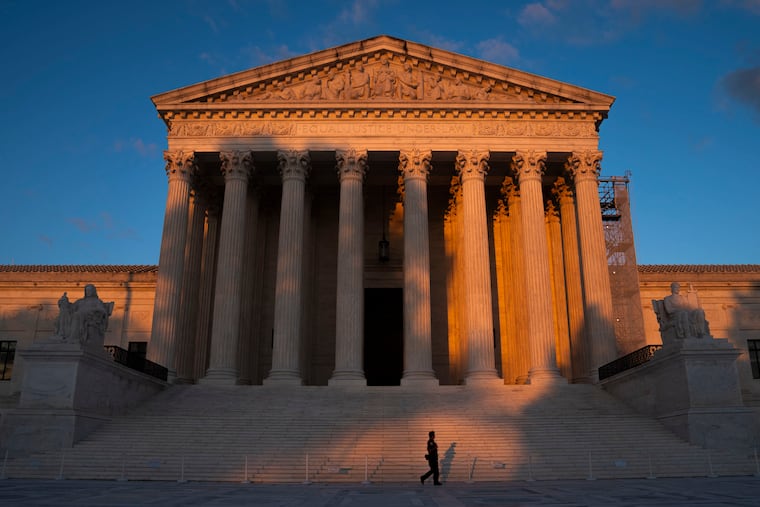U.S. Supreme Court rebuffs GOP effort to block provisional ballots for Pennsylvanians who botch mail voting
At issue was a Pennsylvania Supreme Court decision last week allowing voters whose mail ballots had been rejected for procedural errors to still vote at the polls on Election Day.

The U.S. Supreme Court on Friday unanimously rejected a Republican request to bar Pennsylvania voters who submitted faulty mail ballots from casting provisional votes at the polls on Election Day — a decision seen as a victory for Democrats in the battleground state.
But in rebuffing the last-minute appeal from the Republican National Committee and the Pennsylvania GOP, three of the court’s Republican justices — Samuel A. Alito Jr., Clarence Thomas, and Neil Gorsuch — described the issue as “a matter of considerable importance” and appeared to leave the door open for future litigation after the election.
At issue was a 4-3 decision last week by the Pennsylvania Supreme Court allowing voters whose mail ballots had been rejected for procedural errors like missing dates or failing to use a required security envelope to still vote at the polls.
The case arose out of Butler County, which had a policy of rejecting those provisional votes. It was part of a broader array of litigation that has shaped what votes will be counted in Pennsylvania’s election.
Separately Friday, the Pennsylvania Supreme Court blocked a lower-court ruling that injected confusion into the debate over whether election officials should count undated mail ballots. Instead, it doubled down on an earlier ruling on the issue that this year, at least, they should not.
Tens of thousands of ballots are rejected each election due to such voter errors. And in a state like Pennsylvania, where this year’s presidential race is likely to turn on an incredibly thin margin, the fate of voters’ ability to cast a provisional ballot if they made a mistake could ultimately become significant.
Democrats are far more likely than Republicans to vote by mail.
Republicans, in their appeal of the Butler County case, accused the state’s highest court of rewriting election law. They urged the U.S. Supreme Court justices to set aside any provisional ballots cast by voters whose mail ballots had been previously rejected until further litigation could be settled.
Democrats and voting rights groups argued placing a hold on the ruling would only cause confusion, create problems for election administrators, and, even worse, potentially disenfranchise thousands of otherwise eligible voters.
Though the U.S. Supreme Court justices ultimately decided to let the state court ruling stand, Alito and his Republican colleagues expressed some appetite for weighing in on the issue in the future. But they described the current case as an improper vehicle for that debate.
“Because the only state election officials who are parties in this case are the members of the board of elections in one small county,” they wrote, “we cannot order other election boards to sequester affected ballots.”
In a statement following the ruling, RNC spokesperson Claire Zunk touted the party’s victories in other cases in Pennsylvania including a ruling forcing Bucks County to extend on-demand mail voting for three days.
“While we are disappointed in the the Supreme Court’s ruling, we have secured three major victories for election integrity this week in Pennsylvania,” she said.
But Witold Walczak — legal director of the ACLU of Pennsylvania, which argued for the inclusion of the provisional ballots — hailed it as a win for voting rights.
“A petty error that is irrelevant to a person’s eligibility to vote should never interfere with the counting of ballots, and provisional ballots are a decades-old fail-safe — a backup for voters,” he said. “We’re grateful that the RNC’s argument has failed and that voters can count on provisional ballots as a way to make sure that their vote counts.”